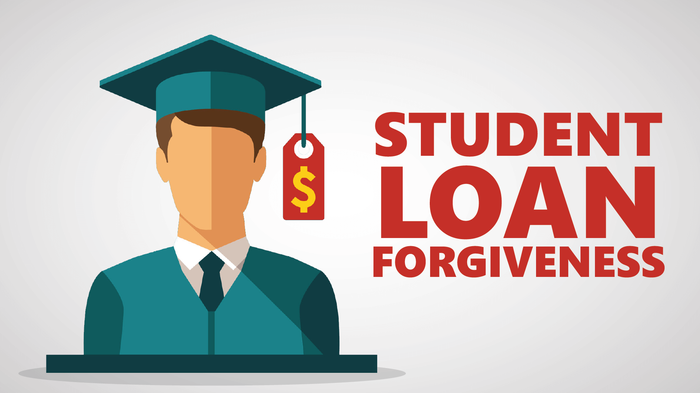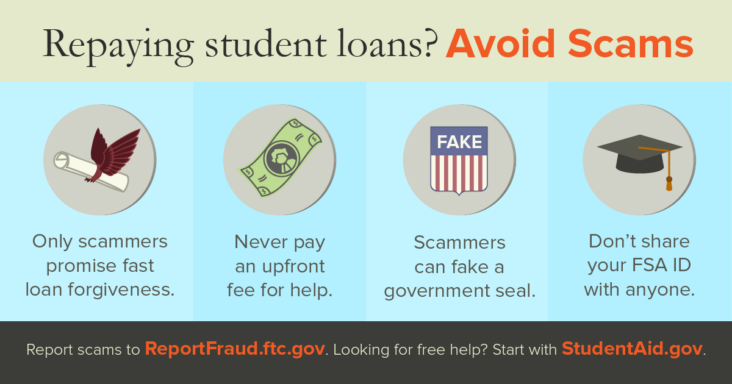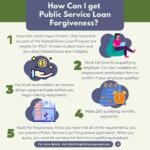Are you feeling overwhelmed by the weight of your student loan debt and eager to explore the benefits of loan forgiveness programs? You’re not alone! But what if your student loan forgiveness application has been denied? Fear not, as we’ve got you covered with expert advice and actionable tips to help you navigate this challenging situation. In this comprehensive guide, we will break down the reasons behind your application denial, highlight essential steps to take following the rejection, and outline alternative options to help you manage your student loan debt efficiently. Say goodbye to financial stress and let’s embark on this journey together towards a brighter, debt-free future!
Exploring Alternative Repayment Plans: Making Student Loan Payments More Manageable

If your student loan forgiveness application has been denied, don’t lose hope. You can still explore alternative repayment plans to make your student loan payments more manageable. These income-driven repayment options, such as the Income-Based Repayment (IBR), Pay As You Earn (PAYE), and Revised Pay As You Earn (REPAYE) plans, can significantly reduce your monthly payments based on your income and family size. By enrolling in one of these plans, you can alleviate financial stress and prevent falling behind on your loan repayments. Remember, timely and consistent payments can positively impact your credit score and future loan eligibility.
How to Successfully Appeal a Student Loan Forgiveness Denial: Tips and Strategies

If your student loan forgiveness application has been denied, don’t lose hope. To successfully appeal the decision, it’s essential to follow these tips and strategies. First, gather all relevant documentation to support your case, such as proof of employment, income, and qualifying loan payments. Next, carefully review the denial letter to understand the reasons for rejection and address them in your appeal. Be sure to adhere to the appeal deadline and follow the proper procedure outlined by your loan servicer. Additionally, consider seeking professional guidance, such as consulting with a student loan expert or financial advisor, to strengthen your appeal and increase your chances of approval. Keep a positive attitude and stay persistent in your pursuit of loan forgiveness.
Taking Advantage of Student Loan Consolidation: Combining Multiple Loans for Easier Management

If your student loan forgiveness application has been denied, consider taking advantage of student loan consolidation to simplify your repayment process. Consolidating multiple loans into one can provide easier management, potentially lower interest rates, and extended repayment terms. By opting for loan consolidation, you can streamline your monthly payments and focus on a single debt, reducing the likelihood of missed payments and late fees. Additionally, you may qualify for alternative repayment plans and loan forgiveness programs in the future. Remember to research your options thoroughly and consult a financial advisor to ensure you’re making the best decision for your financial situation.
Investigating Additional Forgiveness Programs: Uncovering Lesser-Known Options for Student Loan Relief

Explore Other Forgiveness Programs: Dig Deeper for Hidden Gems in Student Loan ReliefIf your student loan forgiveness application is denied, don’t lose hope – there are lesser-known options for student loan relief that might be perfect for you. Many borrowers are unaware of the numerous specialized forgiveness programs available, such as Teacher Loan Forgiveness, Public Service Loan Forgiveness, and Military Service Loan Forgiveness. Additionally, there are state-specific programs tailored to the unique needs of their residents. Conduct thorough research and consult a financial advisor to help you uncover these hidden gems, as they could be the key to finally being free from the burden of student loan debt.
Proactive Steps to Prevent Future Student Loan Forgiveness Application Denials: Improving Your Chances of Success

To enhance your prospects of success in future student loan forgiveness applications, it’s crucial to take proactive measures and learn from previous denials. Begin by thoroughly understanding the eligibility criteria for loan forgiveness programs such as Public Service Loan Forgiveness (PSLF) or Teacher Loan Forgiveness, and ensure that you meet all requirements. Consistently track and document your qualifying payments and employment history, as accurate record-keeping can significantly boost your chances of approval. Additionally, stay informed about any changes in federal student loan policies and actively communicate with your loan servicer to receive guidance and support throughout the application process. By taking these strategic steps, you’ll be better equipped to navigate and secure the financial relief you seek.




